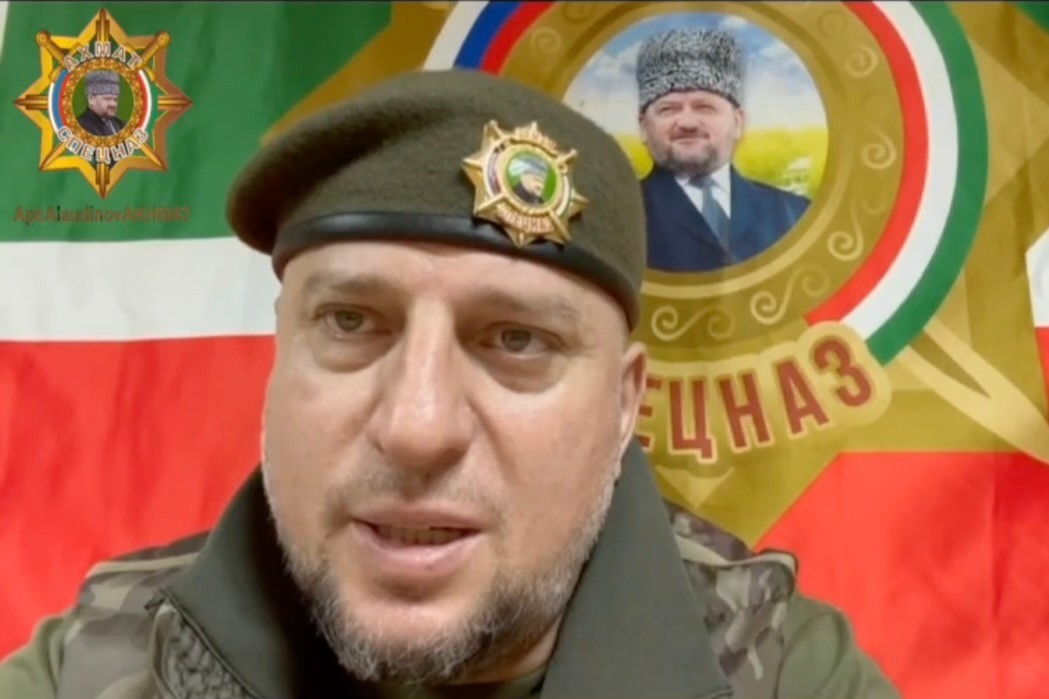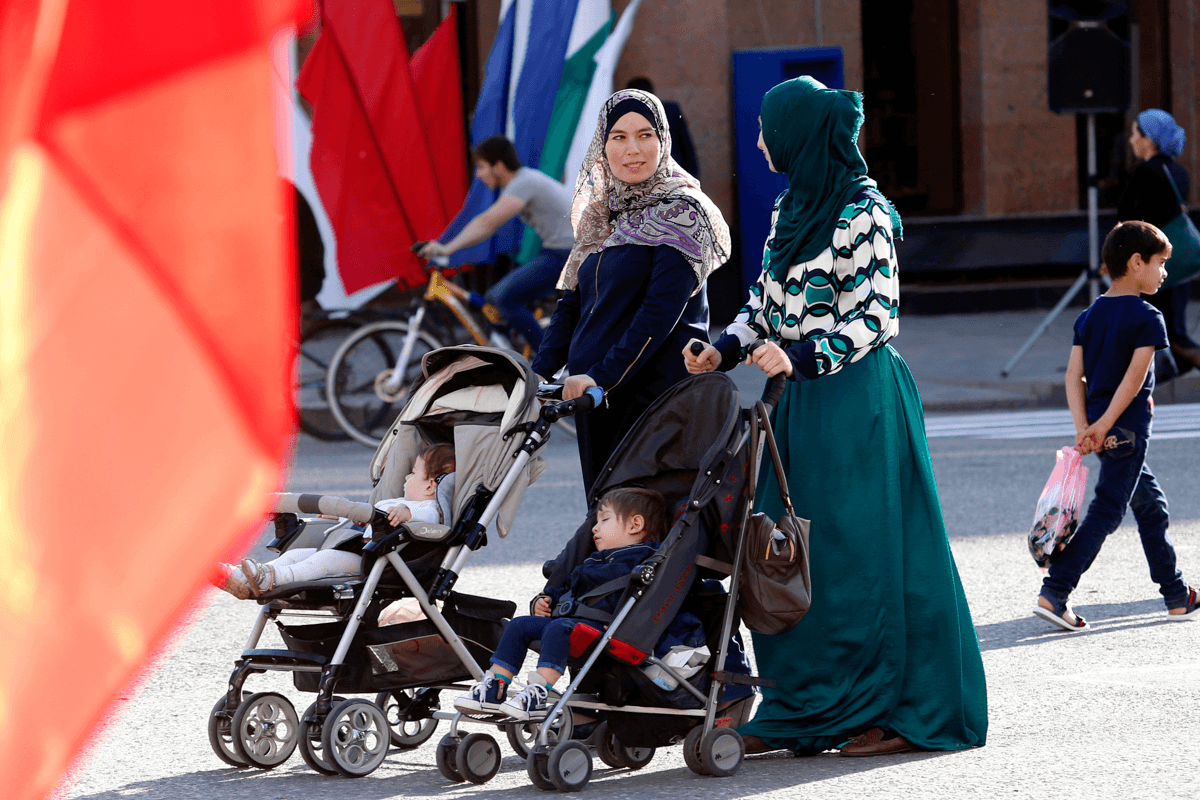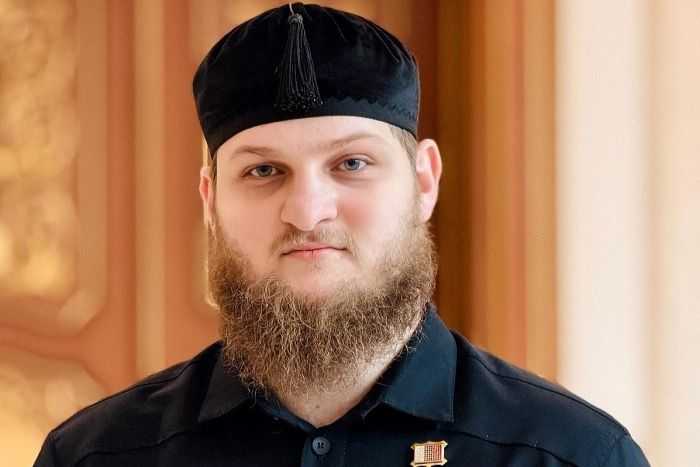
A Chechen special forces commander has dismissed calls for a prisoner swap with Ukraine, and ordered captured Chechen soldiers to kill themselves so that they could end their ‘journey as men’.
On 15 September, the commander of the Chechen Akhmat special forces unit and a Russian Major General, Apti Alaudinov, posted a video on his Telegram channel stating that Ukraine could ‘keep’ Chechen soldiers it had captured.
In the video, Alaudinov discussed how he had recently received several videos in which representatives of the Ukrainian special services provided an opportunity for Chechen prisoners of war to call their families in Chechnya. He added that the prisoners were told to tell their families how to be released: ‘Tell Apti Alaudinov, he knows how to exchange us’.
‘Hearing these words, I actually became so furious. Let’s be honest — Chechens have always considered surrendering to be a prisoner to be the greatest disgrace. For a Chechen, this is such a disgrace that it cannot be washed away by anything except your own blood. And it turns out that these people, whom I would not call men, just raised their hands and surrendered, asking their families to get them out of there, and even more so, for me to get them out of there. I am not talking about those soldiers who were captured under other circumstances, seriously wounded or shell-shocked, these are other circumstances. We are getting these people out’, Alaudinov said.
He added that the captured prisoners were ‘very mistaken’ to expect any help or assistance from him regarding a prisoner exchange, and that no man in their family would save them.
‘In fact, I do not respect you at all, I do not think that you even deserve life. And what surprises me is how you are going to get ready after you raised your paws and surrendered, how are you going to live at all, how are you going to look your family in the eyes, how are you going to look your children and grandchildren in the eyes. Even now you are in captivity — just get up, take a pen, a nail, something and attack someone and do everything you can to get killed, so that you can end your journey at least now as men’, Alaudinov said.
According to Alaudinov, who called the war in Ukraine ‘sacred’, since 2022, around 20,000 fighters have passed through the Akhmat special forces unit, all of whom were volunteers. Alaudinov also claimed that ‘tens and tens of billions of rubles’ was spent from the Akhmat Kadyrov Fund so that the soldiers would feel ‘secure’ during the war, ‘defending sacred values’ and ‘fighting against Satanism, like true Muslims’.
‘If you ask me, I am telling the Ukrainians now, leave them [the prisoners] for yourselves, we don’t need them whatsoever. And don’t call me at all. Am I an exchange agent or something?’
On 13 September, two days before Alaudinov posted his video to Telegram, Ukrainian photojournalist Yan Dobronosov published a video of those captured in the Kursk region, reportedly among whom was the former head of the Chechen village of Valerik, Magomed Zarakhmatov.
In the video, Zarakhmatov, together with others, is shown in a room, greeting the journalist with the words ‘Glory to Ukraine! Glory to the heroes!’ He then tells his story of how he was captured in mid-August in the Sudzhansky district of the Kursk region, without offering resistance. He added that he was forcibly sent to war.
‘We were surrounded by Ukrainian servicemen and we voluntarily surrendered and did not resist, but why?’ Zarakhmatov said.
In the video, Zarakhmatov was asked why Chechens are now defending the country that once attacked them. In his response, Zarakhmatov said that there was currently a dictatorship in the Chechen Republic, and that to understand the situation, you needed to go there at least once.
‘I was forcibly [sent to fight]. And in the future, I do not want to, and now, I do not want to and have never wanted to fight’, he said.
Zarakhmatov also stated that despite the ‘angelic attitude of the Ukrainian special services’, the prisoners still want to be exchanged, since their families may think that they died, and they have no contact with their relatives.
‘If there is an exchange, then we would all like to exchange, to go home, to take our families, and leave from there [Chechnya]’, Zarakhmatov said.








